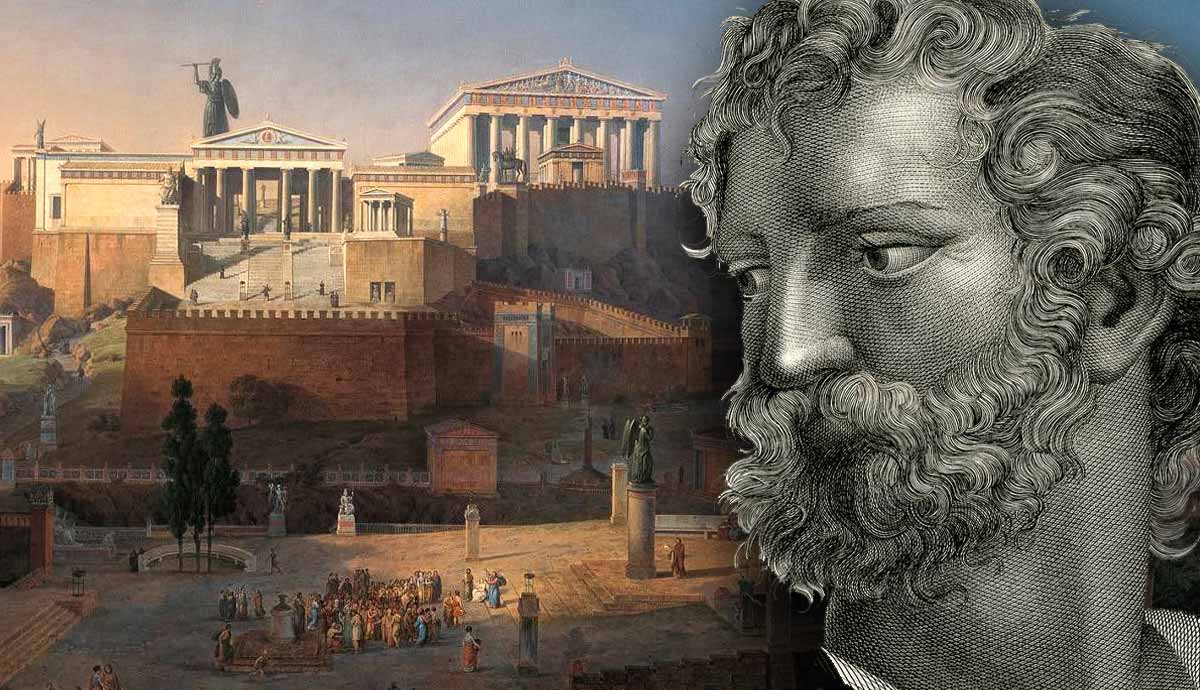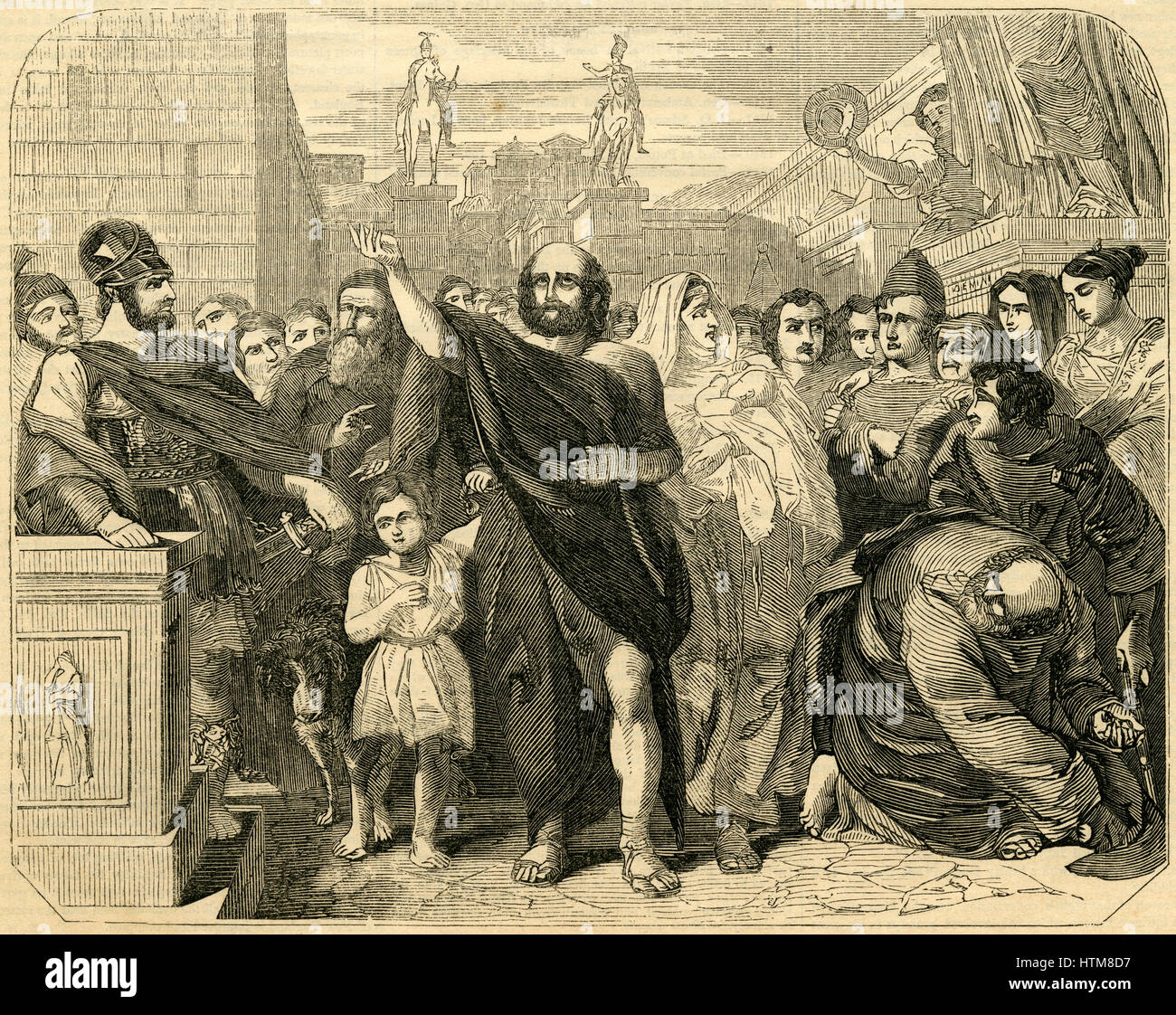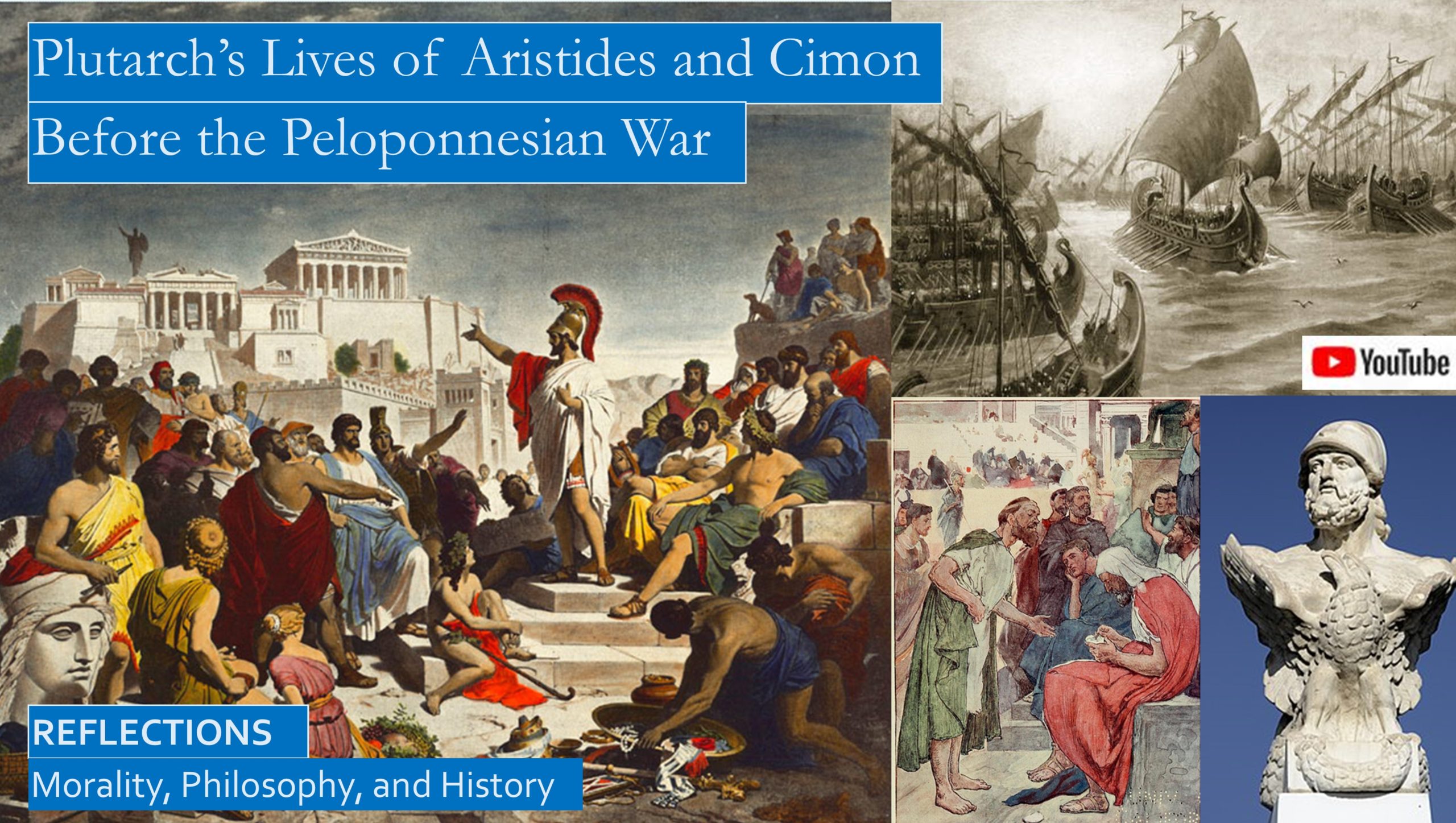
When we reflect on the remarkable legacy of ancient Greece, the towering figures of **Socrates**, **Plato**, and **Aristotle** frequently dominate our thoughts. However, there is another significant individual who merits our attention: **Aristides The Just**. This distinguished Athenian statesman and military leader played a pivotal role in shaping the political dynamics of his era and was instrumental in establishing the foundations of what would eventually evolve into the **Athenian Empire**. Aristides was renowned for his integrity and commitment to justice, earning him the moniker “The Just.” His contributions to democracy and governance continue to resonate in contemporary discussions about political ethics and civic responsibility. So, who exactly was Aristides, and what makes his legacy so pertinent in today’s world? Let’s explore the life and impact of this remarkable figure in greater detail!
Early Life: The Unknown Beginnings

Little is known about the early life of Aristides, which is somewhat surprising considering his later significance in ancient Greek history. Historians generally agree that he was aligned with the faction that advocated for resistance against Persia. To put this into perspective, imagine being part of a sports team preparing for a crucial match. While most of your teammates are eager to adopt an aggressive offensive strategy, you are the one advocating for a solid defensive approach. This was essentially Aristides’ role during a pivotal time in Athenian politics.
### Ostracism: A Political Setback
In **482 BC**, Aristides encountered a major political setback when he was ostracized from Athens. This was not merely a minor reprimand; it was a form of political exile that had significant implications for his career. The reason behind this ostracism was his opposition to **Themistocles’** ambitious plan to utilize the wealth generated from the **Laurium mines** to construct a formidable naval fleet. To illustrate, it was akin to a disagreement within a sports team regarding how to allocate the budget—while some members were eager to invest in flashy new equipment, Aristides advocated for a more prudent and balanced approach to resource allocation.
### Return to Glory
However, the political landscape shifted dramatically in **480 BC** when Aristides was recalled to public life. He made a remarkable comeback during the **Battle of Salamis**, a crucial naval engagement that resulted in a decisive victory against the Persian forces. This moment can be likened to an underdog story where a previously sidelined player suddenly steps into the spotlight and shines. Following this victory, Aristides took command of the Athenian army at the **Battle of Plataea** in **479 BC**, where he played a pivotal role in driving the Persians out of Greece entirely. This series of events marked a significant redemption arc for Aristides, transforming him from a politically exiled figure to a celebrated hero in Athenian history.
The Delian League: A New Alliance

After the conclusion of the Persian Wars, Aristides emerged as a pivotal figure in the establishment of the **Delian League**, an alliance that fundamentally transformed the landscape of the Greek city-states. To visualize this, think of a group of friends coming together to pool their resources and tackle a shared challenge; this is precisely what the Delian League represented—a coalition of city-states united in their efforts to defend against common adversaries.
### Leadership and Trust
In this alliance, Aristides took command of the Athenian contingent, which consisted of **30 ships**, as part of a larger fleet led by the Spartan general Pausanias. His exceptional leadership qualities fostered a sense of trust among the various allies, a crucial element for the League’s overall success. Trust acts as the adhesive that binds a team together; without it, the cohesion necessary for collaboration disintegrates, leading to potential failure.
#### Assessing Contributions
One of Aristides’ most notable contributions to the Delian League was his role in evaluating the financial and military contributions of its member states. He utilized the Persian assessments from **493 BC** as a reference point, ensuring that the process was both fair and transparent. This approach can be likened to the role of a referee in a sporting event, where it is essential to ensure that all participants adhere to the same set of rules. By maintaining equity in contributions, Aristides helped to solidify the League’s foundation, fostering a spirit of cooperation and mutual respect among the city-states involved.
Military Command and Later Career

While the military leadership of the League’s forces ultimately transitioned to **Cimon**, the impact and influence of Aristides remained remarkably significant. However, there is a notable scarcity of reliable information regarding his later career and the circumstances surrounding his death. It almost seems as though he gradually receded into the shadows following his initial triumphs, leaving historians and enthusiasts alike to ponder the potential accomplishments he might have achieved had he remained more prominent in the political and military arenas.
### Democratic Reformer or Not?
The question of whether Aristides can be classified as a **democratic reformer** is a topic of considerable debate among historians. This interpretation, however, is far from straightforward. His connections with prominent figures such as **Miltiades** and **Cimon**, both of whom were not particularly known for their advocacy of democratic principles, complicate this narrative. This raises an intriguing question: was Aristides genuinely a reformer committed to advancing democratic ideals, or was he merely a pragmatic leader adept at maneuvering through the complexities of the political landscape of his time? The situation is reminiscent of evaluating a sports player’s motivations—are they truly a team player dedicated to collective success, or are they primarily focused on their own personal achievements and glory? This ambiguity surrounding Aristides’ legacy continues to spark discussions and analyses among scholars and enthusiasts alike.
Legacy: The Lasting Impact of Aristides

Aristides’ legacy is multifaceted. He is often remembered for his integrity and fairness, earning him the nickname **”The Just.”** But what does that mean in practical terms? It means that even in a world rife with corruption and power struggles, Aristides stood out as a beacon of hope.
Influence on Modern Democracy
His contributions to the formation of the Delian League and his emphasis on fair assessments can be seen as early steps toward modern democratic principles. Imagine if today’s leaders took a page from Aristides’ book—prioritizing fairness and collaboration over personal ambition. Wouldn’t that be refreshing?
Table: Key Events in Aristides’ Life
| Year | Event |
|---|---|
| 5th Century BC | Birth of Aristides |
| 482 BC | Ostracized for opposing Themistocles |
| 480 BC | Recall and victory at the Battle of Salamis |
| 479 BC | Commanded Athenian army at the Battle of Plataea |
| 478 BC | Played a key role in forming the Delian League |
| Unknown | Later career and death |

In conclusion, Aristides The Just may not be as famous as some of his contemporaries, but his impact on Athenian society and democracy is undeniable. His life teaches us valuable lessons about **integrity**, **leadership**, and the importance of collaboration. So, the next time you think about ancient Greece, remember Aristides—not just as a historical figure, but as a model for how we can all strive to be just and fair in our own lives.
What do you think? Could we use a little more Aristides in our world today?

